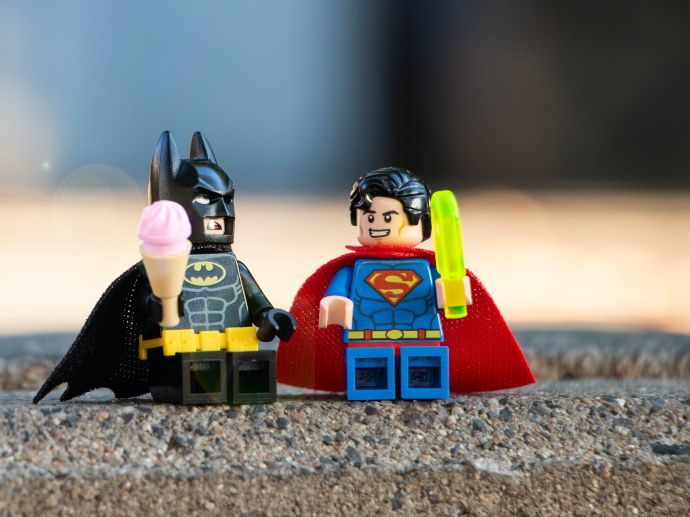We’ve all fallen victim to it. An announcement comes out, or a trailer drops, or something leaks on social media. We get caught up in the anticipation, the buzz—it’s hard not to when so much of modern marketing is designed to do just that. Hype is a contagious plague. It overtakes entire communities and snowballs on its own. Hype begets hype, and the results are never pretty. Too much hype has caused all kinds of problems for average Joes who just want to enjoy media. Here are some of the worst side effects of hype culture, whether we’re talking about video games, movies, TV shows, or anything else. Here’s why we need to put an end to hype culture.
Hype Culture Causes Unwanted Spoilers
When hype for a certain game, movie, or TV show grows so big that it reaches critical mass, it explodes on the web and becomes unavoidable no matter how hard you try. It’s gone mainstream and now everyone’s talking about it. You overhear people talking about it at work or school. You see it mentioned all over Facebook, Reddit, blogs, and news sites. Maybe your family talks about it at dinner. Everyone just assumes that you’re caught up, and they talk about it as freely as they wish—often spoiling details in the process. It only takes a single glance at a stray comment or news headline to have a big moment or plot twist spoiled. And even when people are being courteous enough to give spoiler warnings, just knowing that there’s something to be spoiled is itself a spoiler. When hype is at its peak, you have no choice but to lay low, plug your ears, and ignore the world until you can catch up. But life gets in the way and you can’t always stay caught up, through no fault of your own. Hype culture is unfair to everyone who wants to enjoy the virgin experience of that game, movie, or TV show the same way that everyone else enjoys it.
Hype Culture Leads to Disappointment
Hype is excitement and anticipation taken to the extreme, and it naturally leads to high expectations. If you were cautiously realistic about what’s coming, you wouldn’t be hyped, would you? The problem is that when something gets caught up in hype culture—the next movie in a series, the new season of a TV show, the next video game in a franchise—fans get too excited and start portraying it as the greatest thing since sliced bread. Those fans are happy to flood the internet with their opinions, and it all becomes a whirlwind of emotions and anticipation that sweep you up and warp your own expectations. And nothing can ever live up to unrealistic expectations. By the time you actually experience that new bit of media, you’re underwhelmed, maybe even disappointed. Sure, it might be good and worth whatever you paid—but you’ve been so hyped for so long that there’s no way it could be better than your imagination. And that’s in the best case scenario. Most of the time, you’ll find that it’s just… very typical. Mediocre. Run of the mill. You’re not just underwhelmed, you’re unimpressed. You wonder how this thing got so much attention in the first place. Hype culture creates impossible standards and ruins the media consumption experience. The sad thing is, a lot of movies and TV shows and games would be surprisingly enjoyable if we went into them with low expectations. Hype only hurts ourselves.
Hype Culture Breeds Media Opportunism
When a new wave of hype culture captures mainstream attention, you can be sure that the media will take advantage of that. From the first announcement to long after the actual release, advertisements will flood every avenue of media: YouTube videos, TV commercials, highway billboards, website display ads, podcast midrolls, radio and Spotify and Pandora ads, etc. No matter how hard you try, you can’t escape the deluge. And not only that, but merchandise companies will seize the opportunity to drain every last dollar out of your pocket. And if something gets really big, there will be crossovers that make absolutely no sense at all. Remember when League of Legends collaborated with Louis Vuitton for the 2019 World Championship? Not to mention games like Fortnite, which has infected so many non-gaming realms.
Hype Culture Feeds the Hipster Effect
While some people are prone to getting caught up in hype culture, others have an innate drive to reject anything that gets hyped. They’re known as hipsters, and hipsters have their own hipster culture that directly opposes hype culture. Hipsters want to be unique, original, the first to discover something. They don’t want to like what everyone likes. They avoid anything that garners mainstream attention. So in the midst of hype, when everyone is freaking out about the latest and greatest game or movie, the hipster absolutely rejects it for no other reason except that people like it. You might not identify as a hipster, but everyone experiences the “hipster effect” from time to time: something blows up and you weren’t there to ride the initial hype wave, so you brush it off and avoid it no matter how many accolades it gets. The problem with the hipster effect is, sometimes the hype that a game or movie or TV show gets is actually well-deserved. I admit that I shrugged off The Wire for a long time because I figured there was no way it could be that good. “The greatest TV show ever made”? How could any TV show live up to that? So I convinced myself that fans were just being fans. I became a victim to the hipster effect and was only robbing myself of the greatness that is The Wire—because, even to this day, I absolutely agree that it’s the greatest TV show ever made. Often times, hype culture has innocent roots. People like what they like, and they want others to like it too. They hype it up so others will give it a chance. But hype culture often has the opposite effect, pushing people away with the hipster effect.
Sometimes Hype Is Well Deserved
With the prevalence of social media, hype culture has never been stronger—and, sadly, I don’t think the reality of media hype will disappear anytime soon. Even without social media, people will always get hyped up about games, movies, TV shows. They’ll be non-stop chatterboxes because that’s what people do. But tuning it out isn’t the best solution. Try not to get caught up in hype culture, but don’t be a hipster either. Keep your expectations low and give everything a fair shot. That’s the best way to go. Read next: Popular nerdy media franchises that geeks love







